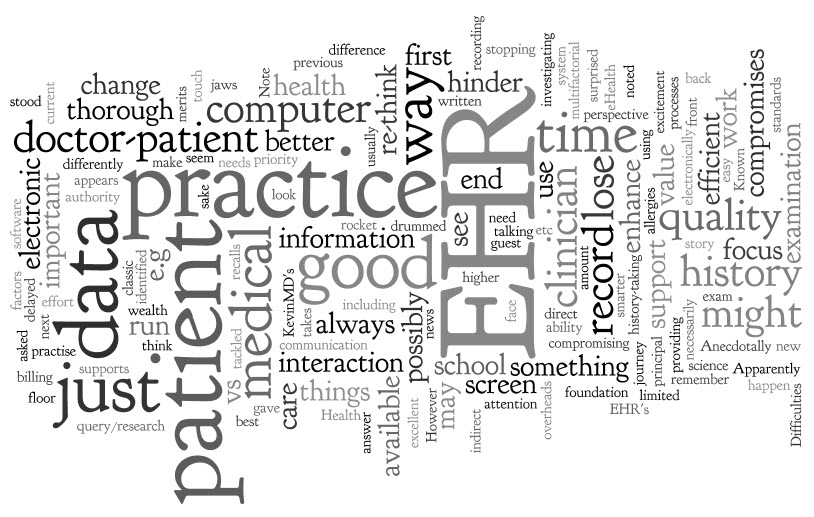 I remember hearing a story about a software demonstration for practice management and billing - a classic where the practice principal proudly stood up and gave testimony about the merits of his new system, including the news that he had to hire extra staff in order to run it, above those who had run the practice beforehand. Apparently the audience's collective jaws 'hit the floor'. This is not good eHealth. Health IT should not add overheads, but make things smarter, quicker, more efficient, and more valuable - or it's probably not worth doing.
There is something weird that appears to happen around computers and all things 'e' - sometimes we just seem to lose our analytical skills, or perspective, when sitting in front of a computer. Computers are just tools to support us in our practice of healthcare.
I remember hearing a story about a software demonstration for practice management and billing - a classic where the practice principal proudly stood up and gave testimony about the merits of his new system, including the news that he had to hire extra staff in order to run it, above those who had run the practice beforehand. Apparently the audience's collective jaws 'hit the floor'. This is not good eHealth. Health IT should not add overheads, but make things smarter, quicker, more efficient, and more valuable - or it's probably not worth doing.
There is something weird that appears to happen around computers and all things 'e' - sometimes we just seem to lose our analytical skills, or perspective, when sitting in front of a computer. Computers are just tools to support us in our practice of healthcare.
In KevinMD's excellent guest blog in August 2009, "How a wealth of information takes attention away from the patient", Abraham Verghese discusses the tension experienced - look at the data or the patient? With more information available at our fingertips and with only a limited amount of time per patient, how do we prioritize our focus for the best outcomes? It's not easy as you might first think. We can be torn between the need or desire for (possibly) higher quality, detailed data, rather than the conducting a thorough patient history and exam - after all, time is limited.
When I was in medical school it was always drummed into me that you couldn't compromise a thorough medical history; that a history was possibly way and above more important than even the examination and the secret to good medical practice. I have always considered that this is a good principle to work by.
If using an electronic health record (EHR) compromises those high standards, then it is time for a re-think. An EHR should enhance, not hinder. If it gets in the way of you talking or touching the patient, or causes you to spend more time or effort WITHOUT providing value back then there is something wrong. Note that the value may be direct and immediate (e.g. more efficient; data available at point of care) or indirect and delayed (e.g. better quality data; ability to do query/research, support recalls etc). The benefits should be obvious. Difficulties are usually multifactorial - the clinician; the application; the inability to touch type; or other factors - but they are an important trigger for stopping and investigating the current work processes so that the problems and barriers can be identified and tackled.
Anecdotally, it has surprised me to see some clinicians assume that data displayed on a computer screen has more authority than it warrants, because it is electronic format. They change the way they practice. However, just as in a paper record, because 'nil known' is noted on a computer screen next to 'Known allergies' does not necessarily mean that they don't have any - you still have to ask as the answer may have changed since last asked. Whether a previous clinician has written in pen or electronically, there is no difference to how we should practise.
Are we compromising our practice? The good old doctor-patient interaction vs. the EHR?
An EHR should not change the way a clinician engages with the patient.
So, it's not rocket science, but don't EHR for EHR's sake. After all, let's face it; an EHR is only useful if it supports quality health care. It is a means to an end, the journey, but not THE end.
Yes, you might arrange the office differently and there might be more opportunity for collaboration once the patient can see their record - that's all good. But if use of an EHR compromises the doctor-patient communication, the recording of data, the use of time in a consultation, or making the history-taking and examination a priority, then the issue needs identification and quick resolution.
Don't lose those first principles that you learned in medical school - they are the foundation of the doctor-patient interaction. The EHR should just be a supportive framework to enable you to do a better job. If it doesn't, stop and re-think as the EHR should enhance, not hinder.
But you all know that already - this is just a reminder for when we lose a little focus in the excitement...
